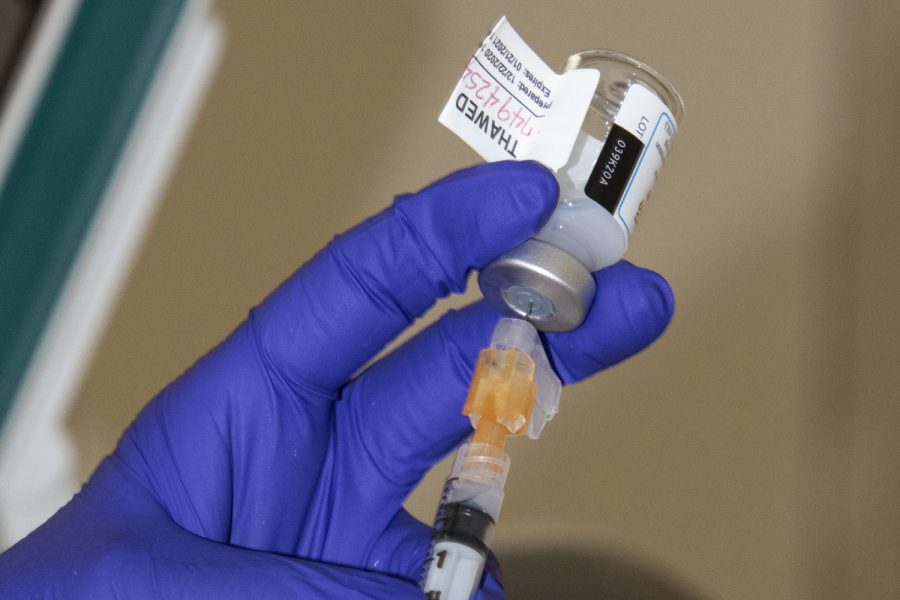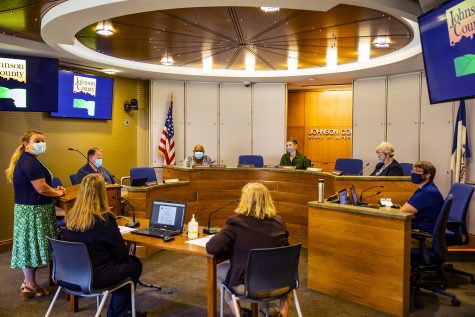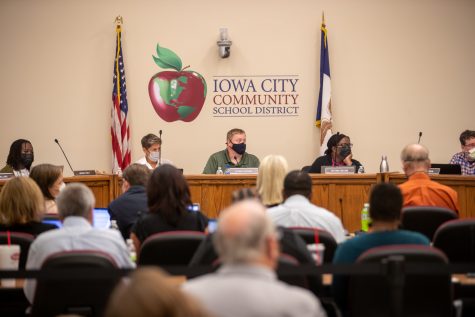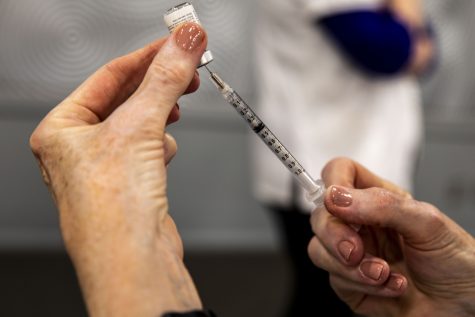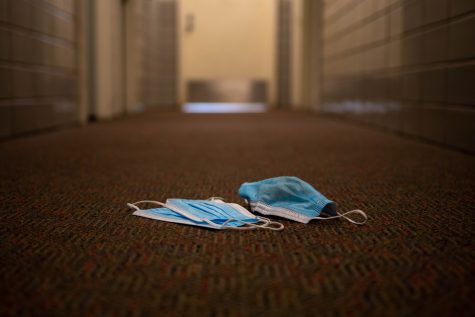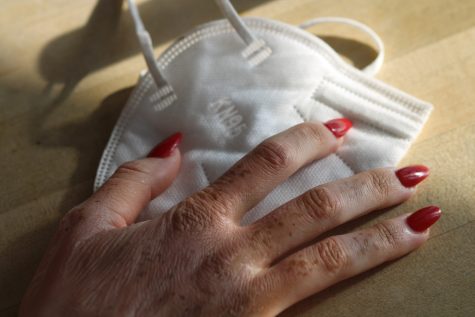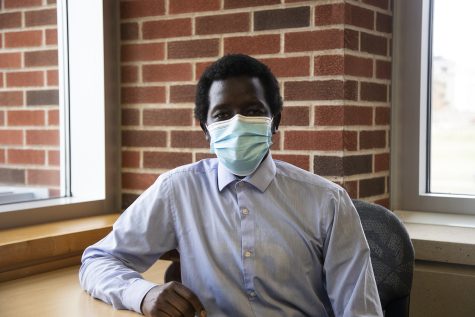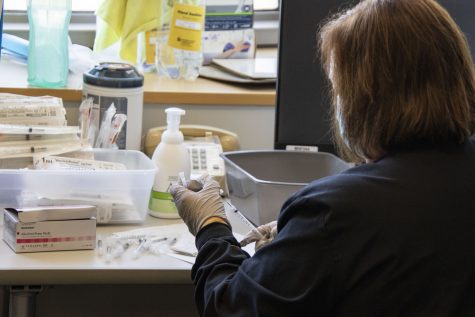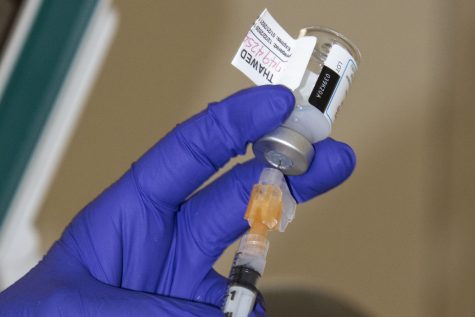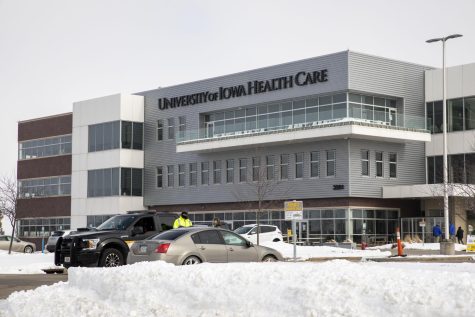UIHC employees receive COVID-19 booster shots
University of Iowa Hospitals and Clinics employees who were initially administered the Pfizer-BioNTech COVID-19 vaccine started receiving booster shots this week.
Moderna COVID-19 vaccine is drawn up on Tuesday, Dec. 22, 2020.
September 29, 2021
The University of Iowa Hospitals and Clinics started their COVID-19 vaccine booster program for UI Health Care faculty and staff on Monday.
The campaign’s goal is to provide an appointment to all UI Health Care employees who want to receive the booster, UIHC said in a release.
Eligible individuals — those who received their second dose at least six months ago — will receive an email invitation in the next four to six weeks to schedule their booster shot appointment.
The first phase of the booster program includes employees who received their second dose of Pfizer-BioNTech COVID-19 vaccine before March 31. UIHC said the hospitals plan to complete the first phase, which includes more than 10,000 employees, within four to six weeks by offering up to 500 vaccine appointments a day.
RELATED: Iowa City mask mandate extended indefinitely
Alongside people aged 65 years and older, residents in long-term care facilities, and people aged 50 to 64 years with underlying health conditions, health care workers are in the first group that is eligible for booster shots, according to an announcement from the Centers for Disease Control and Prevention Monday.
A “booster dose” refers to an additional dose of a vaccine that is administered to someone whose initial vaccination’s protection has begun to decrease over time, often referred to as ‘waning immunity,’ according to UIHC.
In the announcement, UIHC emphasized the importance of getting a booster dose because of the delta variant’s dominance as the circulating strain and cases of COVID-19 increase significantly across the United States.
The dose helps strengthen protection against severe disease in those populations who are at high risk for exposure to COVID-19 or the complications from severe disease.



